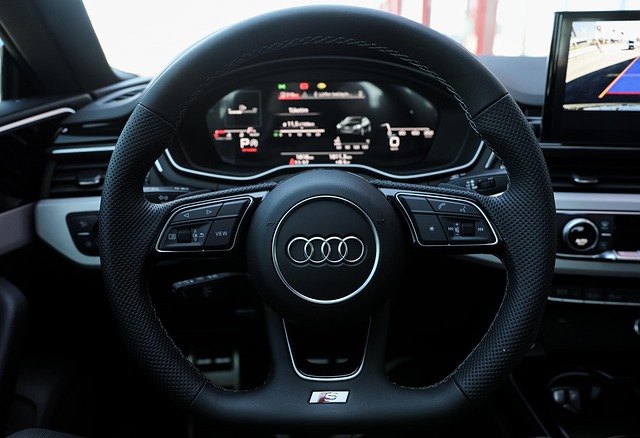Car title loans offer an alternative financing option for individuals with less-than-perfect credit, using their vehicle as collateral. Key photo ID requirements include valid government IDs like driver's licenses or state IDs, with some lenders accepting passports or military IDs. State regulations dictate specific document needs, such as current addresses and recent issuance dates, ensuring a smooth borrowing process while bypassing traditional credit checks.
In today’s digital age, it’s natural to wonder if traditional documentation still holds sway in financial transactions. When considering a car title loan, one crucial question arises: are digital IDs accepted as valid photo identification? This article aims to demystify the process by examining the fundamental aspects of car title loans and the evolving role of digital identities. We’ll explore state-specific regulations and clarify the documentation requirements for securing these types of loans, ensuring you’re well-informed before making a decision.
- Understanding Car Title Loan Basics: What You Need to Know
- Digital IDs: Are They Acceptable for Car Title Loan Applications?
- State Regulations and Photo ID Requirements for Car Titles
Understanding Car Title Loan Basics: What You Need to Know

Car title loans are a type of secured lending that uses your vehicle’s registration and ownership as collateral. Unlike traditional loans where credit scores play a significant role, car title loans often cater to individuals with less-than-perfect credit or no credit history at all. This makes them an attractive option for those seeking quick access to cash, especially when other loan types might be out of reach. The process typically involves providing specific documents and meeting certain criteria to secure the loan.
One of the primary requirements for car title loans is a valid photo ID, such as a driver’s license or passport. This is crucial for verifying your identity. Additionally, you’ll need proof of vehicle ownership, usually in the form of the registration document. Keeping your vehicle registered and up-to-date ensures a smoother loan application process. Direct deposit is another common requirement, enabling lenders to disburse funds directly into your bank account, offering convenience and prompt access to the borrowed amount.
Digital IDs: Are They Acceptable for Car Title Loan Applications?

In today’s digital era, it’s no surprise that the way we conduct business has evolved, including how we verify our identities for financial transactions. When it comes to car title loan applications, a new question arises: are digital IDs acceptable? The short answer is yes, many lenders are now accepting digital or e-IDs as part of their photo ID requirements. This shift is largely due to the convenience and speed it offers both borrowers and lenders.
With just a few clicks, applicants can securely submit their government-issued digital IDs, such as state-approved driver’s licenses or passports, through online platforms. Lenders benefit from streamlined verification processes, enabling them to process loan applications more efficiently, especially for those seeking emergency funding or a quick cash advance. This modern approach aligns with the evolving needs of borrowers who prefer the convenience and immediacy of digital solutions while ensuring that strict loan terms and regulations are still met.
State Regulations and Photo ID Requirements for Car Titles

When applying for a car title loan, understanding state regulations regarding photo ID requirements is crucial for a seamless process. Each jurisdiction has its own set of rules dictating what type of identification is needed to establish ownership and verify the borrower’s identity. Typically, lenders require a valid driver’s license or state-issued ID card as proof of identity. However, some states may also accept other forms, such as passports or military IDs, especially if they include security features like watermarks or holograms.
The car title loan photo ID requirements vary slightly from one state to another. Some states have more stringent rules, mandating that the ID bear a current address and be issued within a specific time frame. For instance, lenders in certain areas may insist on a license or ID card that was issued within the past 6 months. Additionally, clear and legible copies of the photo ID are usually mandatory to ensure accurate verification during the loan approval process, which often involves no credit check and allows you to keep your vehicle as collateral.
In conclusion, while digital identities are increasingly common, traditional photo IDs remain paramount for car title loan applications due to state regulations. Despite the convenience of e-signatures and online documentation, lenders must adhere to specific criteria for verifying ownership and identity. Understanding these car title loan photo ID requirements is key to ensuring a smooth lending process and access to necessary funds.






